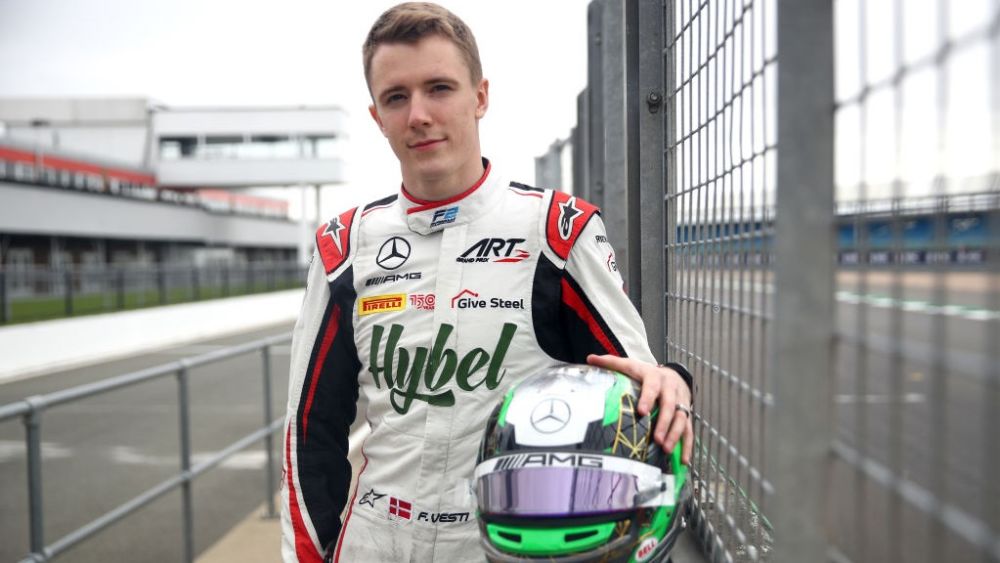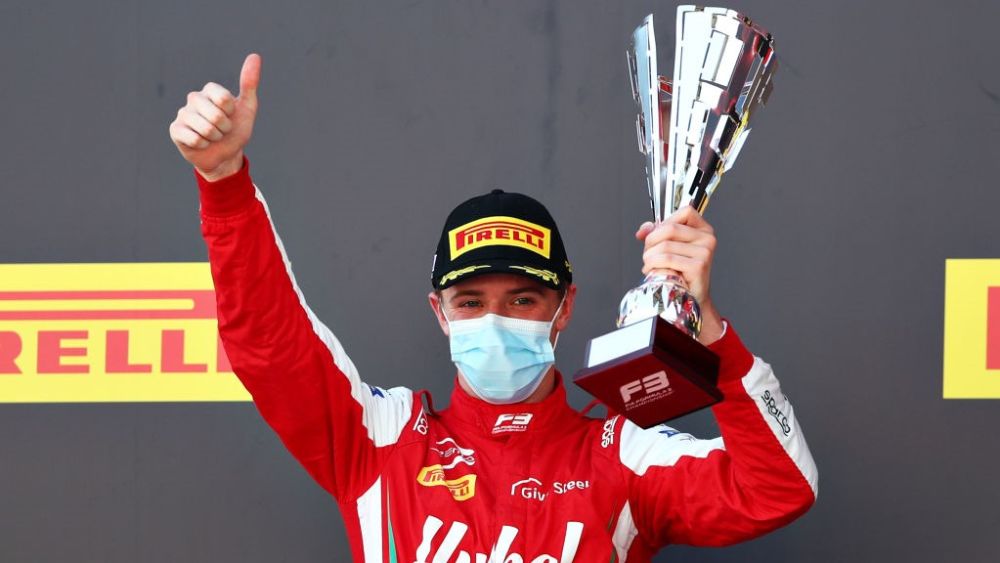Feature
Make-or-break races and missed title opportunities: Frederik Vesti on the moments that made him

Now a Formula 2 race winner and Mercedes junior, Frederik Vesti’s motorsport journey almost stopped before it had fully begun, but his self-belief and talent carried him through to today.
Reflecting on how his rise through the ranks shaped him, the ART Grand Prix driver detailed the key moments from karting, through to Formula 3, to his trip to Spielberg this season that stood out in the Dane’s mind.
AN EMOTIONAL TURNING POINT VICTORY
“Back in karting in 2015, I had a big victory having had a very, very bad season which nearly ended my career because of that and no financial support – we didn’t have enough money to race. In the final weekend of the 2015 go-kart season, I switched teams. It needed a huge budget and my dad paid for the last race. It was a case of either ‘I’m going to make it now or we’re going to stop racing, at least at a high level’.
“I was racing pretty much everyone who’s now racing in Formula 2 back then and I had no good results. Then on the final race weekend, I won the WSK title which is what I had been dreaming about with my brothers and father since I was eight years old and had started karting. This was definitely a very big moment in my career and it’s still the trophy I look at with the proudest memories. That was the first thing that really made me believe in myself and believe that I could actually go all the way to Formula 1.

“Before that’d I’d been very sad and very, very frustrated after each race weekend because it was just bad results on top of bad results. At the same time, I just tried to deal with what I had in front of me, which is pretty much all you can do in any situation. Whether it’s in racing or generally in life, it can be difficult to look too far ahead. It’s quite important to stay in the moment, which is what I did to try to get the most out of every session I did in the go-kart, but to make that step was everything – it still means everything to me.
“It was a huge relief; I remember struggling not to cry a bit on the podium and my dad was definitely crying whilst the podium ceremony was going on. It just meant everything to me, and it also meant the same amount to my father, which is why it was very special. It was very emotional, as the whole year had been full of emotions in a negative way and then having that huge win and positive feeling just sort of cleared all those bad memories, so all that stuck from the season was the good part. It’s something I still remember back to - when you have bad moments, just one good result can clear all of that which is why racing and sport is so special.”
HIS ROOKIE FORMULA 3 SEASON
“I had a great start to my first year in F3. At the second weekend, I got pole position, which was very big for me and then followed it with a Feature Race win. It was my first season in the Championship, I was with PREMA and we were doing a good job from the beginning.
“Then we went into this horrible set of races from Budapest and Barcelona and then to Silverstone, where we were struggling to get on to the podium and losing out a bit to Oscar (Piastri) and Logan (Sargeant). Then I remember coming back in the last two races in Monza and Mugello, I won both Feature Races and came back from I think 60 points behind P1 in the Championship to only finishing 16 points away from Oscar.

“I was very sad not to be in full contention for the Championship because I had some bad moments and DNFs during the season, but I had the most wins of any driver in F3 that year so that’s something I’m quite proud of. Also, looking back on it, picking myself up from a difficult time and turning it into a consistent run of strong results. It’s not a single moment, but sort of a situation that turned into something brilliant. That end to the season is also one of the reasons why Mercedes picked me up because it was a strong sign.
“Stepping up from Formula Regional was a lot of work because PREMA are very good with their drivers. They know exactly what they want from them, which means that it is a lot of work, but also that they’re good at pushing the drivers in the right direction. I learnt a lot that first year.
READ MORE: Banishing self-doubt, Dennis Hauger’s fuelled for the fight
“Sometimes it was difficult to deal with because I wanted to fight for the Championship. I knew I was in a good team, in a good car and I had two teammates who were in the same car as me and were delivery. We were fighting really closely and being behind during that middle part of the season was very difficult to accept because obviously I’m here because I want to win and only that.
“I used that frustration to build myself back up and then dominate the last part of the season. It was bad, but it also turned into something positive, which I’ve carried on into where I am today. You cannot really say it was bad or good, I probably lost the Championship for that, but also gained a lot in other places that I wouldn’t have otherwise.
“On a race-by-race basis, I was very proud I had turned it into something very good, but at the same time I finished P4 which was okay but not great when my two teammates were ahead of me. I didn’t finish the season with the best feeling because I was the last guy in the team. The two other drivers were older than me and probably had a bit more experience, but I was there to fight for the win. If I look at the season overall, I see it more as a missed opportunity than anything.”

CLAIMING HIS FIRST F2 POLE POSITION IN AUSTRIA
“It’s always been difficult for me to be very consistent in Qualifying, but to prove to myself and to everyone that I’m capable of taking pole position in F2 meant everything. I know I can win races; I know I can do good overtakes, strategy and all of this. I’m also aware that if I have consistent Qualifying performances, I can fight for the Championship and podiums on a regular basis.
READ MORE: Clément Novalak: My greatest influences
“That’s why the pole position means so much to me because it really proves the point that if I can make things go in the right direction, I can actually be one of the best drivers in F2 and that’s what my aim always is to be. That one is a very defining moment from this season where after that I could relax and just focus on my driving because I had already proved myself that I could do it.
“Qualifying is so difficult and the only way you can make it work is to just let it go and try to maximise whatever package you’ve got. Trying to perfect anything in F2 is almost impossible because we have so little driving time, so every single thing can change. I can do one great thing on Saturday and then on Sunday it doesn’t work – that's the difficult of F2. It’s about the mindset of letting go and absolutely just using what you have in the moment and that’s the number one thing I learnt this year and used that day in Spielberg.”